- About us
- Assisted Reproduction
Prices and financing
Other specialties
- What is your case?
- Contact
Born in Barcelona in 1895, Dr. Vicens Marquès was the pioneer of a saga of gynecologists who throughout 90 years of history has maintained the same vocation for service with which he was born at the beginning of the last century.
The first of the Marquès gynecologists stood out from a very young age. As soon as he entered the Faculty of Medicine, at the Clinical Hospital, he began to help in the Pharmacy with a salary of fifteen pesetas a month, a fortune for the time.
It must be remembered that at that time women gave birth at home and medical visits were carried out at the patient’s home. Consequently, the activity of gynecologists was exhausting but also especially valued. How was the doctor notified in case of emergency, when the telephone had not reached so many homes? “ The patient’s relative came to the house to tell me,” she recalls in her autobiography. “Once, during the civil war, a very modest family gave me a colored pencil; On another occasion, in the middle of the civil war, after a difficult intervention, the family gave me a country bread that delighted the whole family.”
At age 26, the first of Drs. Marquès won the examinations for doctor of Barcelona. The following year, in 1922, he began to work as a tocogynecologist at the Breastfeeding House. Today, 90 years later, his vocation for service and love for Medicine has been transmitted to the fourth generation of the family.
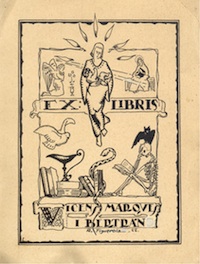
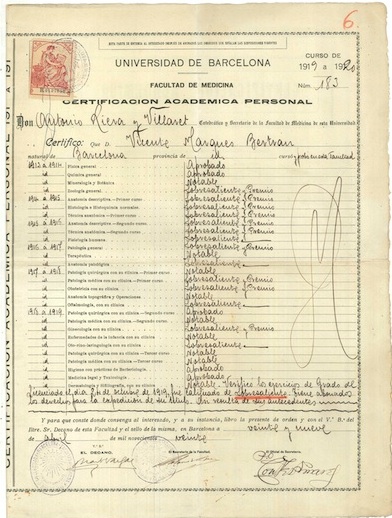
After practicing as a doctor in Barcelona during the civil war, in the early 1940s Dr. Vicens Marquès founded and directed what would be one of the most advanced gynecological clinics in Spain: the Maternal Sanatorium, where 7,000 births were performed. and more than 2000 gynecological interventions.
In 1953, his restless spirit and desire for research led him to become one of the founders of the Spanish Fertility Society, created to advance help for couples with infertility problems.
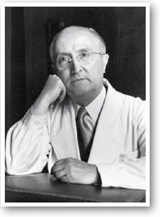
Thanks to this desire to learn and continually improve, Dr. Marquès was one of the first Spanish gynecologists to teach and apply the so-called painless birth that was already carried out in other European countries and that he discovered at international conferences.
It consisted of a series of breathing and relaxation exercises that relieved the woman’s suffering and required a great deal of prior training during pregnancy. In the mid-50s, she was already teaching this method together with her son. They were conferences that the husbands of pregnant women also attended, undoubtedly a precedent for the current childbirth preparation courses
. In his writings he recalls that “in 1955 Pope Pius XII made an appeal from Rome to gynecologists around the world to tell us about the method. I was lucky enough to attend and listen to that conference in which the Holy Father highlighted the work of doctors and the correct means to alleviate that “you will give birth in pain.”
We are in 1955 t was a time when the Rh factor was not yet known and transfusions represented a serious danger to women’s health: Syphilis was treated with arsenic and mercury, and the extraction of the placenta was carried out with patient kneeling on the floor barely illuminated by the light of candles held in glass bottles.
The women gave birth on the dining room table, while a relative held their legs and the doctor gave them chloroform in a dropper to relieve the pain of childbirth.
In the delivery rooms there were many pictures of the Virgin of the Ribbon, protector of midwives, and tradition ordered that the companion (the mother or grandmother) light a candle when labor began, which had to end before the wax dried. consumed. Ultrasound machines did not exist, so every so often the gynecologist had to review the evolution of the birth to check that its development was correct.
Gynecology is a good reflection of the consideration that women have had in every era of history. Incredible as it may seem, in Spain at the beginning of the 20th century it was still believed that women were intellectually inferior to men. Thus, in the Gynecology Manuals of the moment we can read phrases that seem unusual to us today, such as that “the only purpose of a woman is procreation, and that excludes work”, that “for her only sports that contribute to the formation of motherhood” or that “in menopause the woman’s genital tract becomes a parasite.”
Faced with this androcentric vision characteristic of the time, Dr. Marquès was an advanced man also in his conception of women, for whose condition he felt admired. In his autobiography he proclaims his “deep feminist sentiment, his adoration for women, the most exalted being in the universe, and his gratitude, since for my profession I owe everything to women.”
Other testimonies from the time collected in the book “Dr. Vicens Marques” recall his generous dedication to others and how, in the midst of the civil war, when he was called upon to attend a birth, he always went to the patient’s house under fire. the bombings and endangering their own lives.
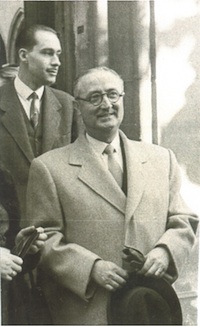
Master of empathy and active listening, Dr. Vicens Marquès, according to his son, Dr. Leonardo Marquès Giraut, “was exquisite with his patients. He never gave the impression of being in a hurry; He listened to them as if he had no one waiting for him. He worried about the repercussions that the disease had on the entire family. More than once the lady left the office without a prescription, with a few words of understanding and comfort, and then you realized that she had started her healing.
Remembering the words of his disciple, Dr. Josep Maria Vilarrasa, “he was a good, upright man, an excellent professional, an example of chivalry, moderation and honesty. “The living image of dignity, a luxury as a teacher.”
Today, 100 years after he began practicing as a doctor, we can say that his son, Dr. Leonardo Marquès Giraut, his grandson, Dr. Leonardo Marquès Amorós and his great-grandson, Dr. Borja Marquès López-Teijón, have remained faithful to his career
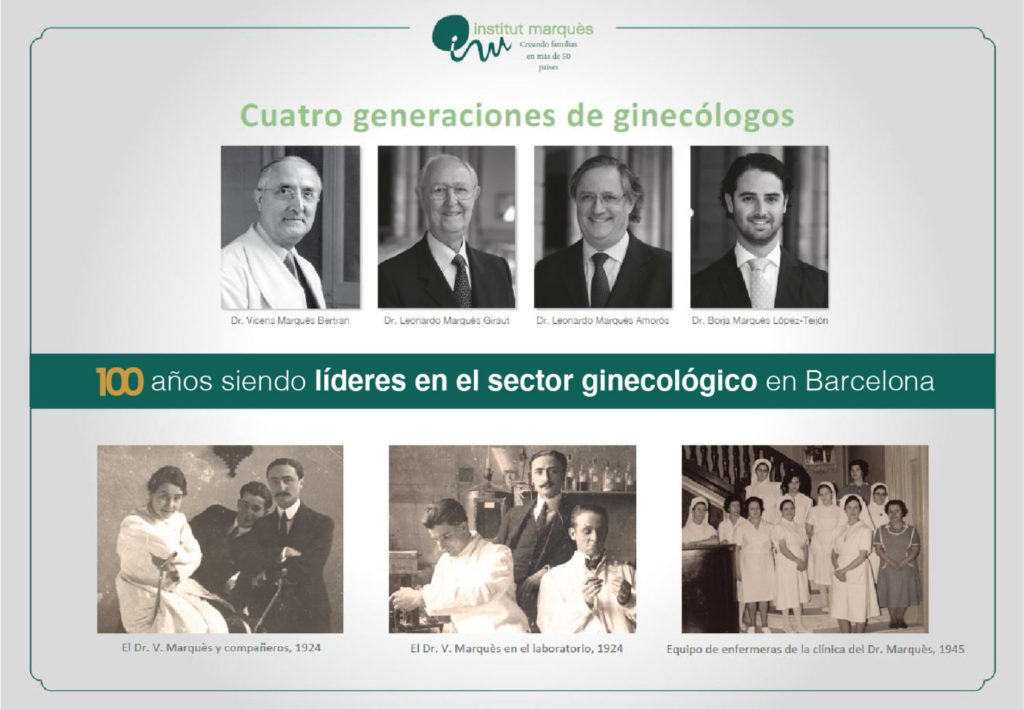
Rellena el formulario y nos pondremos en contacto contigo para organizar una visita con un especialista en Reproducción Asistida.
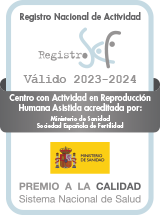

Institut Marquès, clínica LGTBI Friendly